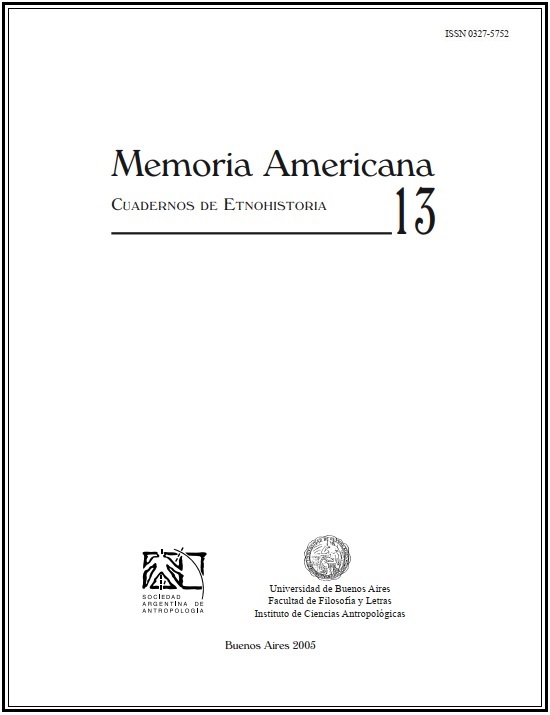Genesis and structure of Euro-indigenous frontier complexes. Rethinking the American margins from (and beyond) the work of Nathan Wachtel
Abstract
The current essay focuses in the main transformation known in historical anthropology research of frontier areas during the last decades. At the beginning we will present Los Vencidos, the pioneer work of Nathan Wachtel, French Historian and Anthropologist, in order to explain how this book turned out to be a milestone in the ethnohistoric literature of Latin Amarica. Then we will argue that the analysis proposed by the author, in terms of resistence/acculturation, tended to be progressively displaced by phenomena such as: ethnicity, mestizaje, ethnogenesis. We will show, thus, how ethnohistorical research regarding the New World and its frontiers has changed, above all in the ways to approach the cultural dynamic and the sociohistorical processes developed due to the arrival of European people to America. Finally this will lead us to pose a tentative definition of a notion called frontier complex.Downloads
Los derechos de autor son cedidos a Memoria Americana. Cuadernos de Etnohistoria, no obstante los autores podrán recuperarlos y reproducir su trabajo en otros medios o formatos previo envío de solicitud al Comité Editorial. En tales casos, deberá citarse a Memoria Americana. Cuadernos de Etnohistoria como primera publicación del trabajo y el mismo queda bajo una licencia Creative Commons CC BY NC SA 3.0 Attribution- Non Commercial -ShareAlike 3.0, la cual provee libre acceso inmediato a sus contenidos pues se rige por el principio según el cual hacer disponible -en forma gratuita- la investigación al público fomenta un mayor intercambio de conocimiento a nivel global.
Los autores deberán remitir el siguiente formulario de cesión de derechos y compromiso de originalidad:
Cesión de derechos y compromiso de originalidad
Al Comité Editorial de Memoria Americana, Cuadernos de Etnohistoria
Por la presente declaro ser el autor del trabajo titulado (nombre del artículo), el mismo es original y propio y no ha sido publicado en ningún formato o soporte con anterioridad.
En caso de ser aceptado para su publicación en Memoria Americana. Cuadernos de Etnohistoria (número/año) cedo los derechos editoriales que me corresponden por el aludido artículo para su publicación en todos los formatos que posea la mencionada revista.
Si quisiera publicar este artículo a través de otro editor o en otro lugar me comprometo a solicitar el correspondiente permiso por escrito al Comité Editorial de Memoria Americana. Cuadernos de Etnohistoria. De ser afirmativa la respuesta del Comité Editorial me comprometo a lo siguiente:
- especificar lugar, editorial y fecha de la primera publicación del artículo en la nueva publicación
- realizar esta republicación sólo luego de transcurridos un año calendario desde la fecha de la presente nota de cesión de derechos
FIRMA
Aclaración











